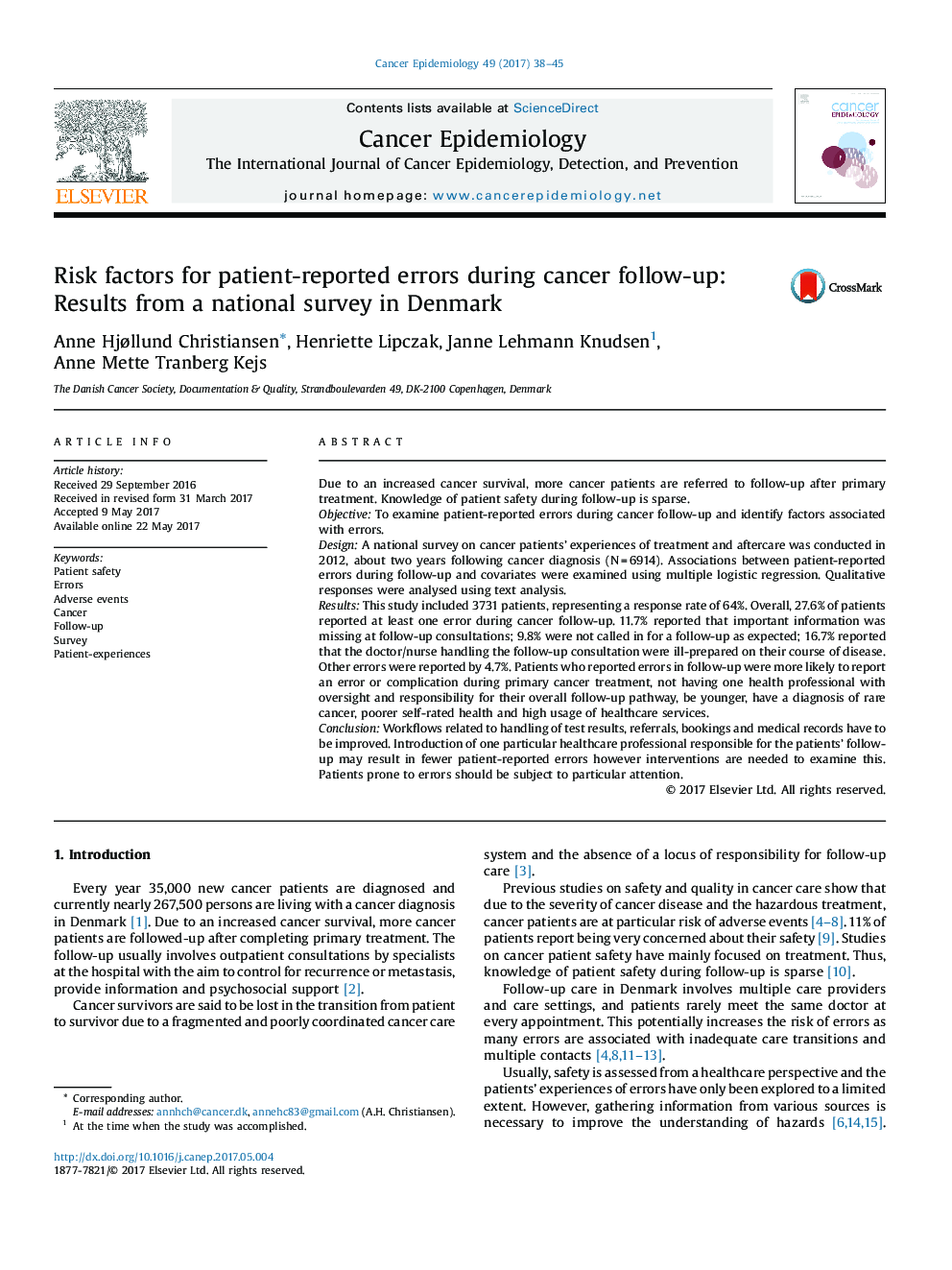| Article ID | Journal | Published Year | Pages | File Type |
|---|---|---|---|---|
| 5524791 | Cancer Epidemiology | 2017 | 8 Pages |
â¢Overall, 27.6% of patients reported at least one error during cancer follow-upâ¢Patients reporting errors in follow-up were more likely to report errors or complications during primary cancer treatment.â¢Age < 70 years, rare cancer, poor self-rated health and many healthcare contacts were all associated with errors.â¢Introduction of one particular healthcare professional responsible for the patients' follow-up may result in fewer errors.
Due to an increased cancer survival, more cancer patients are referred to follow-up after primary treatment. Knowledge of patient safety during follow-up is sparse.ObjectiveTo examine patient-reported errors during cancer follow-up and identify factors associated with errors.DesignA national survey on cancer patients' experiences of treatment and aftercare was conducted in 2012, about two years following cancer diagnosis (NÂ =Â 6914). Associations between patient-reported errors during follow-up and covariates were examined using multiple logistic regression. Qualitative responses were analysed using text analysis.ResultsThis study included 3731 patients, representing a response rate of 64%. Overall, 27.6% of patients reported at least one error during cancer follow-up. 11.7% reported that important information was missing at follow-up consultations; 9.8% were not called in for a follow-up as expected; 16.7% reported that the doctor/nurse handling the follow-up consultation were ill-prepared on their course of disease. Other errors were reported by 4.7%. Patients who reported errors in follow-up were more likely to report an error or complication during primary cancer treatment, not having one health professional with oversight and responsibility for their overall follow-up pathway, be younger, have a diagnosis of rare cancer, poorer self-rated health and high usage of healthcare services.ConclusionWorkflows related to handling of test results, referrals, bookings and medical records have to be improved. Introduction of one particular healthcare professional responsible for the patients' follow-up may result in fewer patient-reported errors however interventions are needed to examine this. Patients prone to errors should be subject to particular attention.
